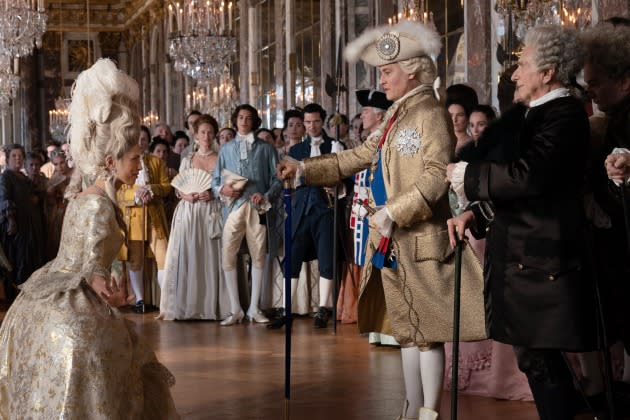Female Directors On The Rise In France But Locked Out Of Blockbuster Budgets – Collectif 50/50 Study

A new study by the French cinema gender parity group Collectif 50/50 has revealed the ratio of female to male directors increased from 2013 to 2022, but that gender parity remains a long way off.
According to the study publisjed on Monday and entitled “Parity Behind The Camera”, women accounted for 27% of the 2,196 directors active over the decade in France.
More from Deadline
French Energy Union Threatens To Pull Plug On Cannes Film Festival As Pension Protests Continue
French Hits 'Alibi.Com 2', 'Sweet Little Things' Head To Beverly Hills For Comedy Showcase
'Happening' Director Audrey Diwan Named As Cannes Critics' Week Jury President
At the same time, just 23.6% of the 2,876 majority-French productions shot over the period were directed only by female directors, although there had been a yearly increase for fiction features directed by women, to touch close to 30% in 2022.
The study revealed, however, that women struggled to build sustainable careers and draw big budgets for their work. Over the period, women accounted for just 11% of directors who had made more that five features.
It showed that a woman had never directed the biggest budget French production of the year over the decade and that the gap between the budgets of the most expensive female and male-directed films was sizeable.
In 2013, for example, the most expensive female-directed A Chance Encounter by Lisa Azuelos came in at €13.4 million, while the most expensive male-directed picture, Le Petit Prince by Mark Osbourne, was budgeted at €59.6 million.
Ten years later, this year’s Cannes Film Festival opener Jeanne du Barry was the most expensive female-directed production in 2022, with a budget of €20.6 million, against €60 million for Jérémy Zag’s Miraculous: Tales Of Ladybug & Cat Noir.
Overall, budgets for female-directed films were on average 21% less than the average budget for male-directed films in 2022, but this was an improvement from the previous years when the gap was above 40%.
“The 50/50 Collective dares to hope that this is not just an exceptional year… while more than three-quarters of women directors remain confined to budgets of less than four million euros, with a systematic impact on salaries,” said the body.
The study also looked at the progress of a pioneering 15% bonus created by the country’s National Cinema Centre to reward films hiring women in key crew positions.
Since its introduction in 2019, the percentage of films eligible for the bonus has risen from 13% in the first year to 34% in 2022.
Films tapping into the bonus tended to be directed by women, accounting for 81% of the productions that were eligible in 2022, and 81% in 2021.
Looking to the future, the body said that it would also like to dig into the question of diversity in the French film industry.
The collective acknowledged this would be hard to do via data, however, because France does not routinely collect data on ethnicity in the same way, for example, as the UK.
“The question of diversity in front of and behind the camera is also essential, and ethnic-racial statistics – today very strictly regulated by law – represent a major subject that the Collective 50/50 wishes to take head-on, in order to bring visibility to these questions which are too little highlighted in our industry,” it said.
Best of Deadline
2023-24 Awards Season Calendar - Dates For Oscrs, Emmys, Major Film Festivals & More
Hollywood & Media Deaths In 2023: Photo Gallery & Obituaries
2023 Premiere Dates For New & Returning Series On Broadcast, Cable & Streaming
Sign up for Deadline's Newsletter. For the latest news, follow us on Facebook, Twitter, and Instagram.

